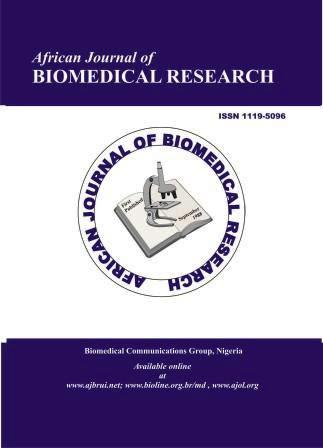Synergistic Antibacterial Effect of Mangifera Indica and Annona Muricata on Antibiotic-Resistant Wound Isolates
DOI:
https://doi.org/10.53555/AJBR.v28i1.5010Keywords:
Mangifera indica, Annona muricata, Antibiotic resistance, Synergy,, Wound infectionAbstract
Mangifera indica and Annona muricata well-known economic and traditional plants in Nigeria were investigated for their phytochemicals and anti-microbial activities. This study presents the investigation of antimicrobial potential of two medicinal plant of Mangifera indica and Annona muricata leaf extracts alone and in combination against antibiotic-resistant bacteria associated with wound infections. A total of 40 samples collected from students of Caleb University Lagos. Morphological and biochemical characterization of bacteria were determined using standard microbiological methods. The M. indica and A. muricata leaves were subjected to ethanolic extraction method. Synergistic antibacterial effect of the combined extracts was determined using Fractional Inhibitory Concentration (⅀FIC). The percentage recovery of plant leaf extracts showed A. muricata with a higher yield (22.16%) compared to M. indica (8.48%). Qualitative phytochemical screening indicated the presence of Tannins, Steroids, Alkaloids, Reducing sugar, Flavonoids, and Glycoside in both extracts, while Phlobatannins was absent. Steroid was found to be the least abundant (18.13 – 22.61 mg/100g) in both plants. Antibiotic susceptibility testing of the isolates demonstrated varied sensitivity patterns, with the isolates showing resistance to multiple antibiotics. The MIC and MBC values for the extracts alone and in combination were determined, revealing significant antibacterial activity. Combined extracts exhibited synergistic effects (⅀FIC ≤ 0.5) against the tested isolates with Staphylococcus aureus (⅀FIC=0.24), Escherichia coli (⅀FIC=0.40), Klebsiella pneumoniae (⅀FIC=0.06), and Pseudomonas aeruginosa (⅀FIC=0.12). The antibacterial efficacy of leaf extracts of M. indica and A. muricata has been evidently proven against resistant bacterial isolates associated with wound infections.
Downloads
Published
Issue
Section
License
Copyright (c) 2024 Ezeanya-Bakpa C.C (Author); Lambe F.E, Okwelogu I.S. (Author); Enoyoze G.E. , Dirisu J. , Adediran B.O. , Alalade, L.I. (Author)

This work is licensed under a Creative Commons Attribution 4.0 International License.









